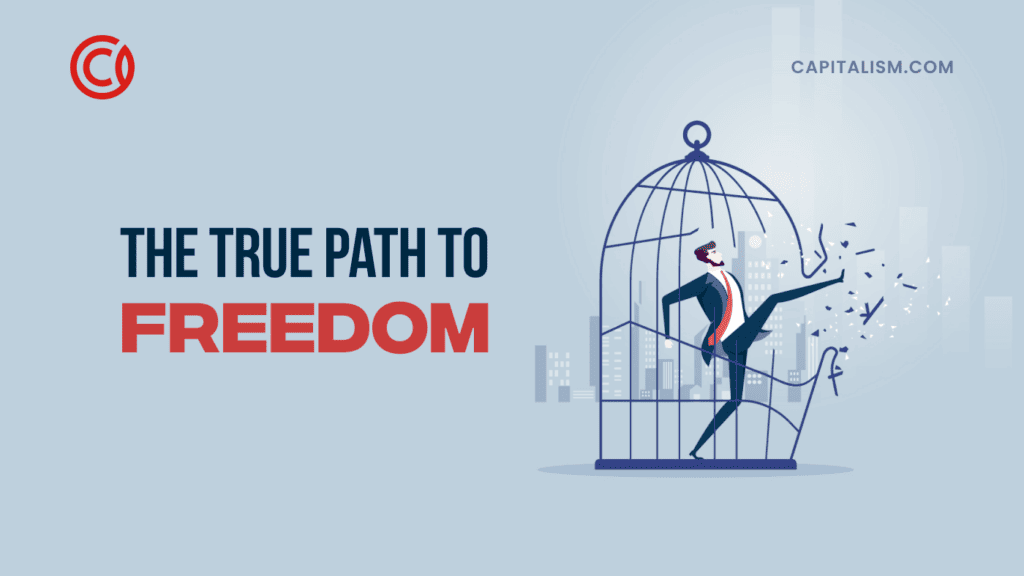Let's talk briefly about mentors. How to find a mentor, and how to keep them.
I believe that we are basically the product of our thoughts. That the thoughts and the beliefs that we have in our brain are the reason why we do the things that we do. The source of our thoughts, the thing that influences our thoughts are other thoughts.
Which sounds weird and woo-woo, but our brains are basically sponges. They're basically normalizers, so whatever we're taking in, our brains normalize and that becomes our beliefs. That becomes what we think about and then it's the product of what we create is the product of what we focus on.
We are constantly being mentored. We're being mentored by the media. We're being mentored by the books we read. We're being mentored by the YouTube videos that we watch.
Whatever we consume enough becomes normal and real to us. It's why we can normalize things like war. We can normalize happiness. We can normalize millions of dollars or poverty, whatever we're surrounded with on a regular basis becomes our standard and that's what we create.
When information, when outside influence, comes from a position of authority, like the media, like a mentor, we take it more seriously and that's why mentorship can be so important. That's why it can be so influential. Because your brain is literally giving it extra attention by having that mentorship relationship.
Let's talk about finding them. Let's talk about getting them.
First of all, mentors are a long-term relationship. They're things that need to be nurtured. They're things that need to be courted, just like a romantic relationship.
The thing that will turn people off, and I know this from experience because I'm approached with this all the time, is when people just flat out say, "You don't know me, but will you mentor me?" No, of course not.
All exchanges, all interactions between people are value exchanges. When two people do business together, one person is after something, another person is after something. They're coming together to get their own purposes.
Mentorships are no different.
Mentorships are exactly the same. Now some mentors might have altruistic reasons, that they might want to give back because they want to feel good about themselves. They might see something in you and see you as a potential partner or employee. Or they might get pride out of the fact that some of their ideas, some of their beliefs are being passed on to someone else—and that's the most common type of mentorship.
When a mentor is older and has accomplished something, and as a result of working with someone they see it being passed down, and they have greater influence, just like they get the same kind of reward out of having a child, out of being a parent. That's usually the value that most mentorships have.
The way that you get mentors, the way that you find a mentor: first put yourself in positions where the people that you want to be like are hanging out. One of the best piece of advice is one of my mentors gave to me is, "When you're seeking the advice of people, seek it from people who are old, rich, and happy."
That's the type of person you want to model. The person who's living the life that you want to have, get around those people. Now if you don't have those people in your life, where do they hang out and how might you infiltrate them?
I have a bit of a strategy that I will share with you and it is called building your success network.
A success network would be those 10 people who are supporting you in your goals. Those 10 people that you're surrounded with on a regular basis who are influencing your thoughts.
If you don't have a relationship with those 10 people, what might that look like or how might you get around them? I suggest that you make a list of 10 people who you want to be like. You make a list of those 10 people who can support you, who can give you feedback on the businesses that you're building or the type of business that you want to have or the life that you want to have, and you write handwritten cards.
Remember a value exchange. What is the give? Appreciation is a perfectly good give. Writing a handwritten message, and there's a bit of a template that I like to follow. It's basically this: Dear so-and-so. I want you to know that you inspired me in this way. As a result of being inspired, I have taken this action and now I am doing this. Now my life is going in this direction. If I can ever be of value or service to you, please let me know. I'd love to be a resource. Then sign your name.
Then follow up with them two weeks later. It's a dance. It's a date. Just like any relationship. You can open the conversation with appreciation and that can often get a conversation started.
Another way to do this is simply to provide value upfront. What a lot of people are doing when they're trying to get jobs or trying to get clients or trying to get mentors is they just go right for the ask. People smell that. That's a take mentality.
But if you're putting deposits in the relationship bank account, you can crank that and cash that check later as long as you keep putting deposits in. Relationships are like bank accounts. You gotta keep putting deposits in to keep the relationship going. Once in a while you can write a check to yourself or crank that check.
You lead with value, and that might look like this: Someone has a business and you want them to mentor you in business. Where can you provide value in that business?
It might just be sending clients and customers to that business. You become the number one sales person for that company and you're not even on payroll and they're like, "Who the heck are you?" Then you set up a time to talk about how you can be of more value. The idea that a mentor's just going to choose you and mentor you, is a fantasy land, but if you're providing value on a real and regular basis, no one can ignore you.
For example, people message me just about every day and ask if I will mentor them, if I will give them advice on their business. They've just got one quick question. "I've just got one quick question." There's 1,000 of them a day and I delete all of them.
I don't have time and it's not a value to me to answer 1,000 emails. But if someone comes into that door, or sends customers to that door every day, or they're constantly providing value for us, they're constantly talking about us, they're sharing our message. They're sharing how capitalism and freedom is the way to make a difference in the world, in fact half that office over there are people who did exactly that, and then they came to me and they said, "I'm looking for an opportunity. I'm willing to move across country. I'll bring my whole family there. Do you have any openings?"
Sometimes the answer is yes, but in one case, there's one person, Tyler, in that office who we didn't have a spot for him but he provided so much value we said, "Come on down. We'll find a spot for you."
Now he's a rock star on that team and I'll do whatever he ... Like I'd bend over backwards for him. He wants to start a business. I'll support his business. I'll invest in his business. I'll mentor him in his business. We go to lunches and we talk about how he can grow, about what contacts he can make. I'll email my list for him.
I'll do whatever he needs, because he has put so many checks into that relationship bank account.
Most people go out and they just try and take, when if you really want to build relationships, you really want to change these thoughts by sort of changing the circle that you're hanging out with, lead with value, every time. You can start by sending that card to your success network and following up two weeks later, or finding out where someone needs help and providing that help.
I did a podcast on this. It's called Building Your Success Network. It goes into more detail, the template of the card to send and how to build that group of people who can support you. You can also look for it on iTunes. Hope you find it valuable.
MORE AWESOME VIDEOS FROM RYAN MORAN ON CAPITALISM.COM:
• I Just Paid Trump $300,000 in Taxes, Which is About Half of My Tax Burden for the Year
• Who is to Blame for Income Inequality?
• Why Government Should Never Dictate A Minimum Wage









